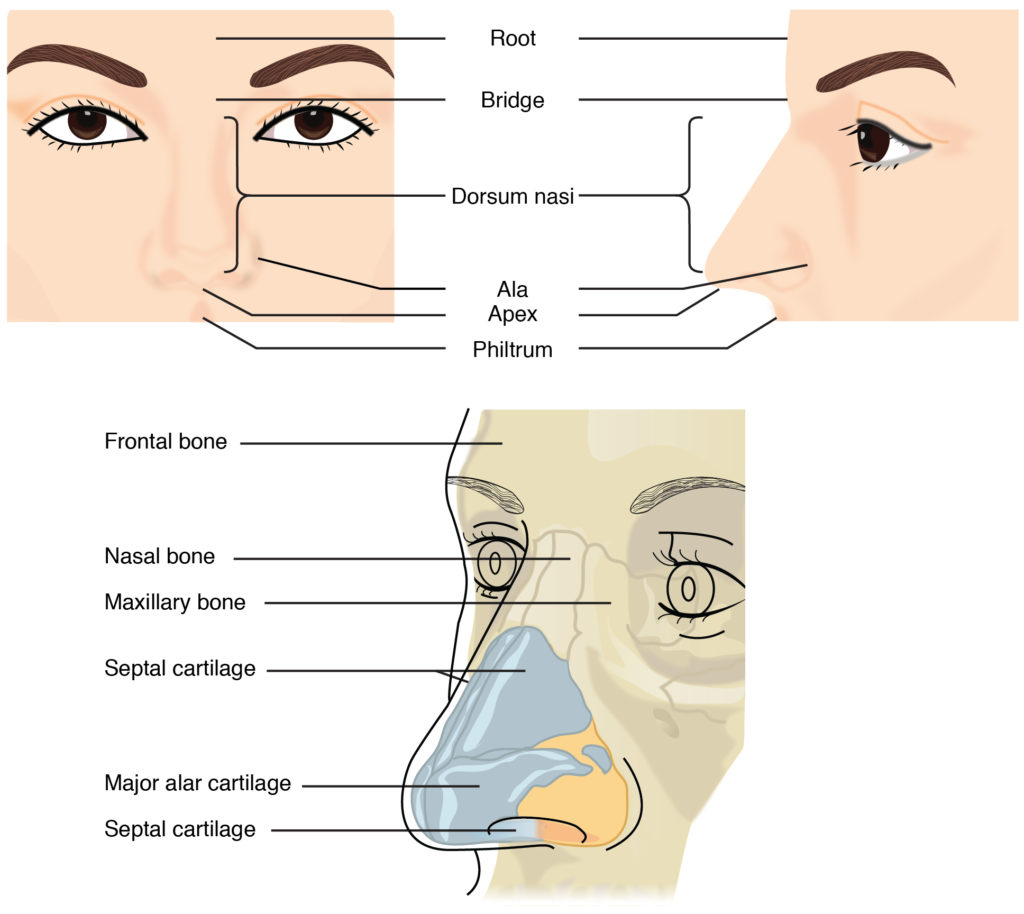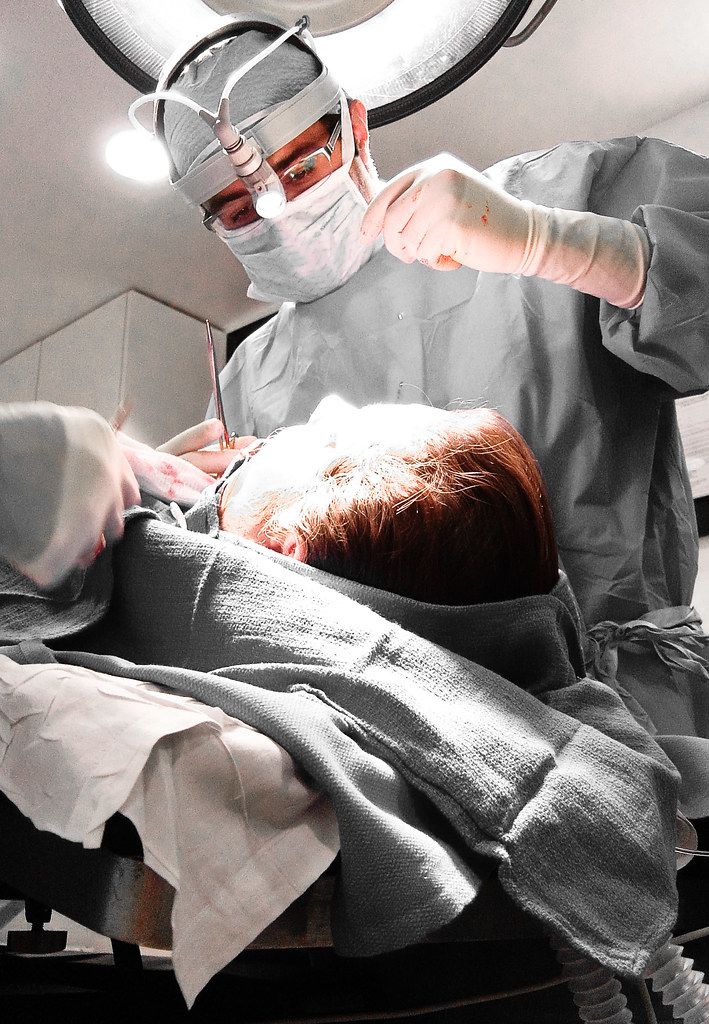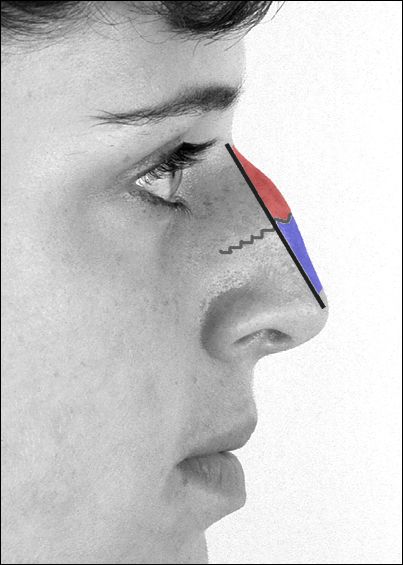Plastic surgeons are responsible for performing rhinoplasty procedures, commonly known as “nose jobs”. Rhinoplasty can be used to reshape the nose for a different appearance, improve the nose’s function by correcting a nasal deviation, or to reconstruct it after a deformity caused by an accident.
Simply disliking what your nose looks like after plastic surgery is not enough to file a lawsuit. Your surgeon must have caused a severe and debilitating injury, infection, or disfigurement in order for a successful claim to be filed. While there are some complications that the plastic surgeon cannot help or avoid, if your injury was caused by negligence or improper conduct then you have every right to take legal action.
Understanding How Rhinoplasty Works
Although rhinoplasty is the most common facial plastic surgery procedure, with well over 200,000 procedures performed annually in the United States, it is also one of the more difficult cosmetic surgeries to perform. That’s because the human nose actually has a multitude of intricate parts that all need to work in harmony together.

The nose contains two paired nasal bones, along with two different pairs of cartilages, each with three parts, and each on a different plane. The septum in the middle of the nose also contains cartilage and bone. By removing parts of the nose, you run the risk of weakening skeletal support which can cause the nose to collapse, as well as difficulties breathing. While a skilled surgeon can reshape a nose without causing damage, improper surgical techniques can lead to a host of issues for patients.
Common Problems Caused by Rhinoplasty
One of the first potential threats during the rhinoplasty procedure is an issue that can arise during any surgical procedure; a bad reaction to the anesthesia. This can happen if too much anesthesia was used, as levels of anesthesia need to be carefully tailored for each individual. Additionally, if the physician did not get a complete medical history, and an allergy to anesthesia was not known or taken into consideration by the doctor, the patient may suffer an allergic reaction to the anesthesia.
Complications that are specific to rhinoplasty surgery include things such as:
- Difficulty breathing through the nose after the surgery: In the recovery period after surgery, it is common to have difficulty breathing for many patients. But if too much cartilage was removed, it can cause long term breathing problems.
- Adhesions: It is not uncommon for the side of the nose to stick to the septum after surgery. This can usually be corrected with a quick office visit.
- Nasal stenosis: This refers to a narrowing of the nasal inlet, a deformity that can cause breathing issues.
- Nerve damage: While most nerve damage resolves in under a year, some serious cases can cause permanent numbness in patients.
- Nasal valve collapse: This can cause snoring, difficulties breathing, and severe congestion.
- Rocker deformity: When a moveable, “rocking” bone as part of the bridge of the nose occurs, this is called a rocker deformity. These are usually the result of a fracture that occurred during surgery.
- Step off deformity: If you can feel a space in between the bone of your nose, this is what’s known as a step off deformity. This can cause the nose to appear asymmetrical
- Open roof deformity: Open roof refers to a gap in the cartilage that separates the two nostrils.
These types of conditions may require additional medical procedures or surgeries. A malpractice lawsuit may provide compensation for medical bills, additional treatment, lost wages, pain and suffering, and other losses.

Botched Nose Jobs Can Cause Long Term Side Effects
Even issues that seem insignificant can be a result of a surgeon who was negligent during the procedure. Some of these smaller problems can also result in bigger detriments to health and aesthetics for years after the procedure.
Side effects after rhinoplasty, such as pain, bruising, or swelling, are to be expected. There are however, some side effects that can lead to long term problems. Side effects to watch out for include, but are not limited to:
- Excessive bleeding:You might expect to have some bleeding after surgery, but if the bleeding becomes excessive, there may be an underlying issue. This bleeding could be a sign of a rocker deformity, open roof deformity or step off deformity.
- Nose appears “pinched”: If you take a deep breath through your nose and the side walls collapse in, this could be a sign of an “overdone” nose job. If your nose job left your nose too narrow, it can lead to nasal valve collapse.
- Pain after surgery: Pain is an expected side effect, but if your severe pain persists more than two days, or your nose is still tender to the touch after three months, this may be a sign of a long term issue.
- Septal perforation: Septal perforations are holes in the septum. Because these occur rarely, many doctors are not trained to repair them, and often tell patients to just wait and see if the hole heals on its own. But without treatment, some perforations can remain open for years, growing in size, and leading to difficulties breathing, painful infections, or total deterioration of the septum.

When To Suspect Negligence Was Responsible for Your Botched Nose Job
Not every plastic surgery will go according to plan, and nose jobs are no exception. Just because you are unhappy with your appearance does not necessarily mean you have cause to bring a lawsuit. If your surgery left you with a severe cosmetic issue that is causing you significant psychological harm, then in some cases it is possible to file a claim. But in most cases, you will need to prove that the doctor performing your surgery breached their duty of care to you, and was willfully negligent in performing your nose job.
In order to determine whether there was negligence during the rhinoplasty surgery, you will need an experienced medical malpractice lawyer to review your medical records and talk to you about what happened. Then if he or she believes that negligence occurred, that attorney will consult with experts in the same specialty as the doctor to confirm whether the doctor deviated from the standard of care in their treatment.
The Thistle Law Firm is experienced in handling rhinoplasty injuries. If you believe that you were injured during or after your rhinoplasty surgery, or there was a delay in your treatment, the attorneys at the Thistle Law Firm are here to take your call and answer your questions at 215-525-6824. You can also reach us by filling out our online form here.

